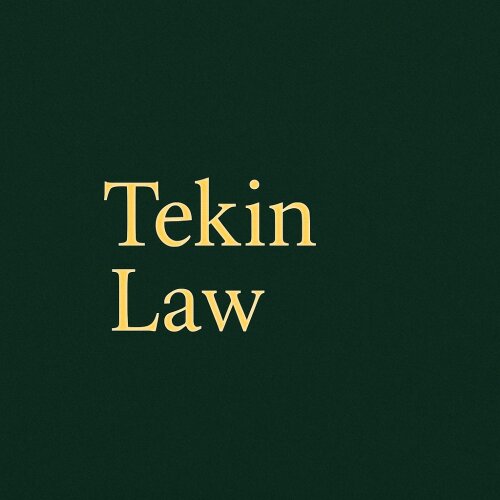Best Employer Lawyers in Istanbul
Share your needs with us, get contacted by law firms.
Free. Takes 2 min.
List of the best lawyers in Istanbul, Turkey
Legal guides written by Tekin Law Firm:
- Arbitration in Turkey
Turkey Employer Legal Articles
Browse our 1 legal article about Employer in Turkey written by expert lawyers.
- Is a Company Liable for Employee Crimes in Turkey?
- Table of ContentsIntroduction: The Dual-Risk Reality for Companies in TürkiyeThe Guiding Principle: Personal Criminality and Corporate ConsequencesParallel Sanctions: Penalties for Individuals and the CompanyPenalties for Individuals (Executives, Directors, and Employees)"Security Measures" Against the CompanyKey Risk Areas Where Corporate Liability Often ArisesBribery and CorruptionFraud and Abuse of TrustAnti-Money Laundering (AML)The Strategic... Read more →
About Employer Law in Istanbul, Turkey
Employer law in Istanbul, Turkey regulates the relationship between employers and employees. It covers various aspects such as employment contracts, workplace safety, wages, working hours, and termination of employment. Understanding the legal framework is crucial for both employers and employees to ensure their rights and obligations are protected.
Why You May Need a Lawyer
There are several situations where seeking legal advice in Employer law in Istanbul, Turkey may be necessary:
- Disputes between employers and employees
- Unfair labor practices
- Wrongful termination
- Negotiating employment contracts
- Ensuring compliance with labor laws
Local Laws Overview
Understanding the key aspects of local laws related to Employer in Istanbul, Turkey is essential. Some important points to be aware of include:
- All employment contracts must be in writing and include specific terms such as job description, working hours, wages, and benefits.
- Minimum wage and working hour regulations are set by the government and may vary depending on the industry.
- Both employers and employees have obligations regarding workplace safety, health regulations, and social security contributions.
- Termination of employment must follow specific procedures and may require severance payment depending on the circumstances.
- Employers are prohibited from discriminating against employees based on gender, race, religion, or disability.
Frequently Asked Questions
1. Can an employee be terminated without cause in Istanbul, Turkey?
No, an employee cannot be terminated without cause. There must be a valid reason, such as poor performance, misconduct, or redundancy, and the employer must follow the necessary procedures prescribed by the law.
2. What is the maximum working hour limit in Istanbul, Turkey?
The maximum working hours per week in Istanbul, Turkey is 45 hours. However, this may vary depending on the industry as certain sectors may have different limits.
3. What are the employee's rights in terms of annual leave?
According to Turkish labor laws, employees are entitled to at least 14 days of paid annual leave after completing one year of service. The duration increases with additional years of employment.
4. What steps should an employee take if they believe they have been subjected to unfair treatment?
If an employee believes they have been treated unfairly, they should document any incidents and gather evidence. It is advisable to consult with a lawyer specializing in Employer law who can guide them on the best course of action.
5. What are the key factors to consider when negotiating an employment contract?
When negotiating an employment contract, it is important to consider the terms related to wages, working hours, benefits, and termination procedures. Seeking legal advice before signing the contract can help ensure that your rights are adequately protected.
Additional Resources
For further information and assistance in Employer law matters, you may find the following resources helpful:
- Istanbul Bar Association: Website: www.istanbulbarosu.org.tr
- Turkish Ministry of Labor and Social Security: Website: www.csgb.gov.tr
- Chamber of Commerce and Industry: Local chambers often provide resources and guidance on employment-related matters.
Next Steps
If you require legal assistance in Employer law in Istanbul, Turkey, it is advisable to:
- Gather all relevant documents and evidence supporting your case.
- Research and reach out to reputable lawyers specializing in Employer law.
- Consult with a lawyer to discuss your situation and receive personalized advice.
- Work with your lawyer to navigate the legal process and protect your rights.
Lawzana helps you find the best lawyers and law firms in Istanbul through a curated and pre-screened list of qualified legal professionals. Our platform offers rankings and detailed profiles of attorneys and law firms, allowing you to compare based on practice areas, including Employer, experience, and client feedback.
Each profile includes a description of the firm's areas of practice, client reviews, team members and partners, year of establishment, spoken languages, office locations, contact information, social media presence, and any published articles or resources. Most firms on our platform speak English and are experienced in both local and international legal matters.
Get a quote from top-rated law firms in Istanbul, Turkey — quickly, securely, and without unnecessary hassle.
Disclaimer:
The information provided on this page is for general informational purposes only and does not constitute legal advice. While we strive to ensure the accuracy and relevance of the content, legal information may change over time, and interpretations of the law can vary. You should always consult with a qualified legal professional for advice specific to your situation.
We disclaim all liability for actions taken or not taken based on the content of this page. If you believe any information is incorrect or outdated, please contact us, and we will review and update it where appropriate.

















